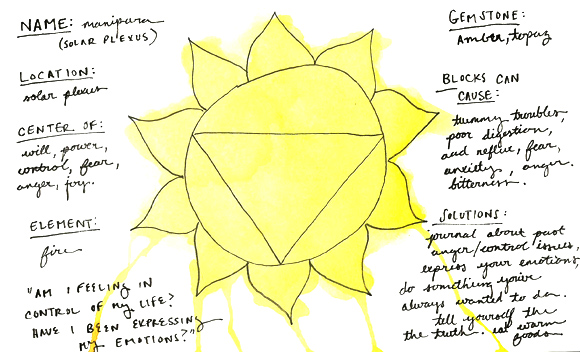|
Obesity is a global epidemic that is changing the world. Lack of movement and unhealthy food choices are the main causes of obesity, but when looking deeper into the subject it is no secret to ancient wisdom that obesity and (a lack of) spirituality are mutually exclusive. Based on my life experience and studies in eastern subjects, here are several notions about the spiritual outlook to obesity.
The logical and exercise science point of view determines that obesity is caused from energy input being greater than energy output. Many people’s palate and brain are addicted to high salt, sugar and fatty foods. This notion is true, but I believe that it is not the only cause. Humans are emotional creatures and there is no denying the basic instinct such as finding community, love, pleasure and happiness. Unlike our land and sea mammals that are driven biologically to reproduce and survive, humans have an expansive consciousness with the freewill to choose how they want to live. This generation of youth is raised with prominent negative health behaviors. If a child grows up eating fast food and drinking soda in replacement for water, the child will grow up eating the same way unless he or she is educated otherwise. Simply put, what science and psychology says about obesity is true. Most underlying causes of obesity are driven from the emotions, which then becomes an addiction caused from the release of hormones in the body. Many food chemists design food to become addicted, which plays into the role of overeating. It’s a vicious cycle that takes time to retrain the body and brain. During my yoga studies, we learned about the chakras, or energy centers. The solar plexus (naval chakra), called “manipura” in Sanskrit, is one’s “City of Jewels.” The position is behind the naval and the abdominal wall and radiates seven centimeters above and below the naval. When balanced the naval chakra promotes clarity, wisdom, self-confidence and wellbeing. Some yogis believe that the love we feel in our heart chakra initiates from manipura. Our decisions or “gut-feelings” are based upon the strength of manipura. Science says the gut is a person’s “second brain” as there are more cells in the gut than the brain. Many believe that manipura is closely related, and affects, one’s psyche. An underactive solar plexus causes severe emotional problems. It promotes mistrust, doubt, worry of what others think, depression, anxiety and a dependency for approval of other people. Those who feel this way can find comfort through emotional eating. In ancient Japanese beliefs, one’s midpoint is called the Hara, or “sea of energy.” Combined with the Hara is a pocket of etheric energy called tan tien. In alchemist’s texts, Taoists refer to the Hara as the “cauldron.” It also gets this name, as this is the area for digestion and assimilation of food. Those with an energy blockage have issues feeling full or satisfied due to a lack of tan tien. The same concept is true with manipura as the naval chakra represents our digestive fire. The fire in our constitution balances the heat and energy produced in the body. When unbalanced stomach problems arise, which affects the clarity of the psyche. Thus, there is a deep connection between the mind and the gut. Our “power center” is one of the major emotional centers and is the main storage area for our “chi” or energy. When you observe a fetus inside a mother, you know that the baby cannot survive without its “power chord,” the umbilici cord, which happens to connect to the baby’s naval. When we are born we disconnect from our mother’s power, but can still obtain power from our center through our lives. If you’ve ever seen an old Japanese movie where the man stabs himself in the stomach, he essentially is cutting of his life cord to the Hara. In both Japanese and Sanskrit philosophies, once a person buries his or her power, psychological issues develop and become worse with age. In simple terms, it’s like burying yourself “six feet under.” When observing an obese body frame, it is likely that he or she has abdominal obesity. Biology on fat storage plays a roll, but gynoid or abdominal obesity is often the easiest to gain and the hardest to lose. Why is that? Emotionally, because often people easily give up their energy, confidence and power and find it challenging to take control of their life. People who constantly give, are pushovers or never put themselves first are in this category. In simple terms, people “bury” their power deep within with additional layers of adipose tissue. For many obese people, they have “lost” their power somewhere on their journey in life. Many keep giving their power away to their boss, spouse, children, friend or anyone who needs their service. Those who have power, but still struggle emotionally are stuck in belief systems that they can’t be or look a certain way. This too is linked subconsciously to being powerless. Many experience the domino effect. Sometimes it starts with one scenario that leads into other and more complex situations later in life. Many who have been verbally, physically or sexually abused in their past are likely to fall into negative eating habits. Mostly with women, there is either an underlying sense of shame or the need to be unattractive to men. I have found this with women who were sexually abused in their upbringing. In fact, they cover and hide any sense of beauty and love that can shine from their power center. Ayurveda is an ancient science that is part of the Vedas. Yoga, Vedic astrology and Ayurveda work synergistically to create the ancient Vedas that many yogis know about. In Ayurveda, obesity (sthaulya) is an excess of meda (fat) and vasa) adipose tissue. Many practitioners claim obesity is mainly an excess of the dosha, kapha. Emotionally kapha represents love, community, enjoyment, support and patience. Some Ayurvedic practitioners I have worked with claim that those who do not receive love through human interaction search for it elsewhere. The searching for love is usually connected with food to get that temporary high and satiated feeling. Plus, those with an excess of kapha tend to hold onto “things” that no longer nourish them. Kapha represents the structure of the body and is heavy, slow, cold, steady and soft. In terms of obesity, all three concepts validate the psyche and emotional components of life as a valuable attribute to overeating, weight gain and obesity. People are obese for many reasons, but those who are not emotionally stable seek fulfillment and validation through overeating. Those who “MUST eat their ice cream everyday” have connected a certain food with a certain feeling. Why is this connection to a certain food that important? A truly balanced person never has a biological urge to “need” a certain food everyday for survival. The most important lesson is that power must be balanced. Those who have excess power often abuse their personal strength. Or use their power to compensate for something else lacking in their life. Not everybody has emotional problems, but for many the emotion is deeply buried and allows others to control our life instead of ourselves. Even if a person is religious, he or she may not be spiritually fulfilled and in control of their life, choices and emotions. If you have any other points to share, please comment below as MBSF loves to hear words of wisdom from different perceptions.
7 Comments
Lala
7/27/2022 12:49:45 pm
Horrible article, those who are not emotionally stable seek emotion and fulfillment through overeating?? What kind of derogatory stupidity is this?
Reply
Laura Tuzzolino
12/11/2022 09:11:07 pm
The author(s) are correct. I speak from the perspective of an obese person. What I believe they are saying is that the individual has felt abused and unloved as a child. Because of that he would try to comfort himself. In this particular case he would do it with food.
Reply
Nicole
9/3/2023 05:55:54 pm
I believe that this article is indeed very factual. It may trigger some but if you step back and think about it, it makes a substantial amount of sense.
Reply
Z
9/12/2023 09:28:06 am
Enjoyed the article, Could you give some tips as to how to clear the energy and provide healing to that part of the body specifically
Reply
Angel Castor
7/7/2024 03:14:10 am
I'm Angel Castor from the US. White Caucasian Female. I'm 43 years old and I got married at the age of 25, I have only two children and I am living happily.
Reply
Leave a Reply. |
AuthorElizabeth Rae Kovar M.A. is Author of her memoir, Finding Om and is a Fitness Trainer, Yogi, Reiki Master, Presenter and Lover of Life. To view her portfolio please visit www.elizabethkovar.com Categories
All
Archives
October 2022
|



 RSS Feed
RSS Feed